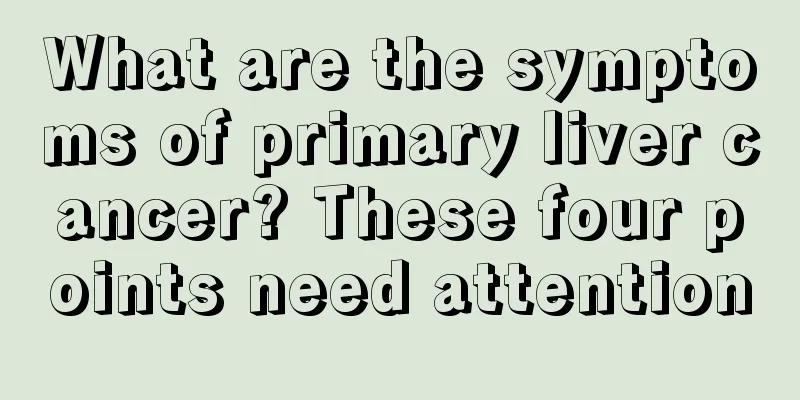What are the chemotherapy options for colon cancer

|
Colon cancer is a common digestive tract malignancy and ranks third among gastrointestinal tumors. The most common sites are the rectum and the junction of the rectum and the sigmoid colon. Most cases occur after the age of 40, and the male-female ratio is very high. Chemotherapy is a commonly used method for patients with colon cancer, but the chemotherapy regimen varies according to the different conditions of each patient. The most common ones are as follows: 1. Oral fluorouracil regimen. 2. UFT regimen. UFT is an oral drug composed of tegafur and uracil in a molar ratio of 4:1. Although UFT has been used as an adjuvant chemotherapy drug for many years, it has never been recognized by oncologists in Western countries, especially in the United States. 3. Capecitabine regimen. Capecitabine is another oral prodrug of FU. After being completely absorbed by the intestine, it is converted into 5FU under the action of three metabolic enzymes. This better plays the role of tumor inhibition and reduces toxicity. 4. Oxaliplatin combined with 5FU/LV regimen. Oxaliplatin is a third-generation platinum drug that inhibits tumors by directly inhibiting DNA synthesis. Since its synergistic effect with 5FU has been demonstrated in the field of metastatic colorectal cancer, its role in adjuvant chemotherapy has attracted much attention. 5. Irinotecan combined with 5FU/LV. Irinotecan (CPT11) is a semi-synthetic derivative of natural camptothecin, which inhibits topoisomerase I to interfere with DNA replication and transcription, thereby inhibiting tumors. Although it has shown considerable efficacy in the treatment of metastatic colorectal cancer, whether as a single drug or in combination with 5FU/LV, the results of the three clinical trials so far in adjuvant chemotherapy have been unsatisfactory. About half of patients with colon cancer experience metastasis and recurrence after surgery. Except for some early-stage patients, patients in the late stage and after surgical resection need chemotherapy. Chemotherapy is another important treatment measure after surgical treatment in the comprehensive treatment of colon cancer. 1. Systemic intravenous combined chemotherapy regimen Colon cancer chemotherapy regimen is mainly based on 5-FU, and tetrahydrofolate (LV) as a regulator can enhance the efficacy of the effector 5-FU. (1) 5-FU/LV regimen The efficacy of 5-FU/LV combination therapy has been confirmed by many studies and is currently the standard treatment worldwide. LV: 200 mg/m2, day 1 to day 5; 5-FU: 500 mg/m2, day 1 to day 5; (2) FOLFOX4 is the safest and most effective chemotherapy regimen for advanced colon cancer and the best choice for postoperative adjuvant chemotherapy for stage III colon cancer. Oxaliplatin: 150 mg/m2, first day; LV: 200 mg/m2, day 1 to day 5; 5-FU: 500 mg/m2, day 1 to day 5; Systemic intravenous chemotherapy can be used before, during and after surgery: (1) Preoperative chemotherapy is also called neoadjuvant chemotherapy, which aims to prevent distant metastasis, shrink the tumor and facilitate resection. However, due to the short time and different chemotherapy sensitivities of different tumor patients, adjuvant chemotherapy is still required after surgery. (2) Postoperative chemotherapy mainly uses a combination chemotherapy regimen based on 5-FU/LV (used for 5 consecutive days, repeated after 1 month, for at least 6 cycles), which has become the standard treatment for stage III colon cancer after surgery. 2. Oral chemotherapy Oral chemotherapy drugs for colon cancer mainly refer to fluoropyrimidine prodrugs, which are converted into 5-fluorouracil through one or more metabolisms after absorption to exert anti-cancer effects. Oral chemotherapy has high efficacy in clinical applications, few adverse reactions, convenient administration, and can be treated in outpatient clinics. It is suitable for elderly cancer patients and family chemotherapy, and has become a new trend in the adjuvant treatment of colon cancer. In recent years, low-dose, long-term maintenance chemotherapy has been introduced into the treatment of colon cancer. Oral chemotherapy has been further promoted. |
<<: What to do if colon cancer spreads
>>: What are the types of colon cancer
Recommend
Keep in mind the eight taboos for health preservation in the beginning of autumn
Eight taboos of taking supplements in the beginni...
How does melasma come about
Time flies, the years pass by like a shuttle. Tim...
What can you do if the milk turns sour
If milk has become sour, you must not drink it an...
What are the medicines that can improve human immunity?
People's good health is mainly due to good im...
What are the dangers of insufficient qi and blood
Qi and blood are very important for everyone. A p...
Cold hands and feet and sweating
Regarding the problem of cold hands and feet that...
What to do if you get sunburned
In summer, the weather is very hot. Although many...
What are the lactam drugs
When we have a cold or fever, doctors often presc...
What are the benefits of good sleep?
For humans, sleep is a necessity of life and it o...
What is the reason for frequent eye mucus
Many people are troubled and embarrassed by frequ...
Liver cancer may cause fatigue and weight loss in the early stages
Liver cancer may cause fatigue and weight loss in...
The early symptoms of cardia cancer are mild and occur intermittently
Early symptoms of cardia cancer are often caused ...
Daily potassium supplement
Potassium is a trace element that regulates the a...
What are the methods of self-repair of tooth enamel
Teeth are very important to the human body. We us...
Facial Exfoliation
If the stratum corneum on your face is too thick,...









